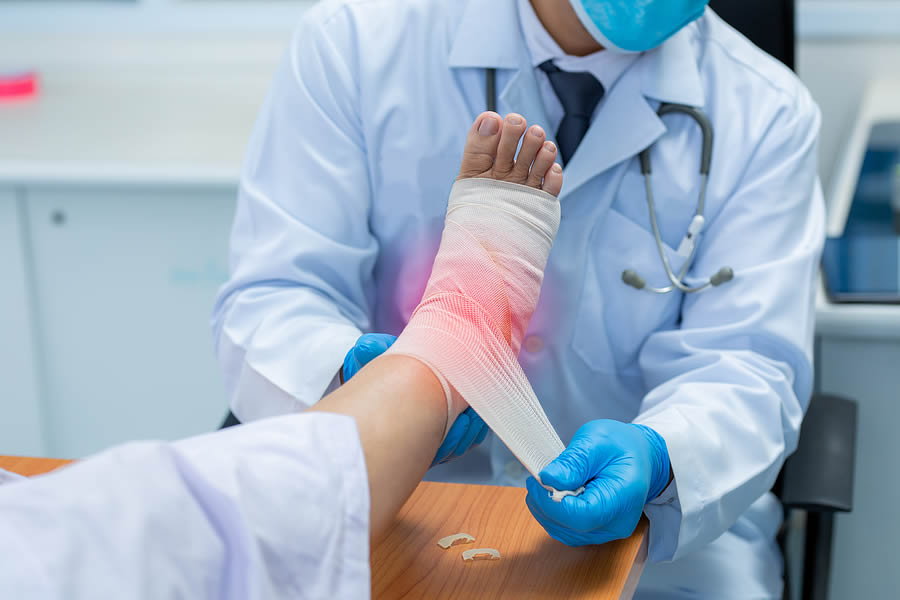
Wounds are injuries to the skin or tissues caused by physical damage, disease, or other injuries. Podiatrists are trained to diagnose, treat and manage various types of wounds including diabetic foot ulcers, heel wounds, and burns on the bottom of the feet. At Podiatry Centers of Maryland, we offer professional wound treatment for local patients that are suffering from both acute and chronic issues. Foot wounds can be difficult to treat because they're often hidden from view and hard to care for without causing additional damage to the surrounding skin and tissue. Fortunately, there are now options available that make it easier than ever before for podiatrists to treat foot wounds effectively while minimizing discomfort for patients.
Foot wounds are injuries that affect millions of people every year. While they may be common, they can also be very painful and need to be taken care of right away to avoid infection and other serious complications. They can be caused by a variety of factors, including but not limited to:

A podiatric wound treatment doctor specializes in treating problems related to the foot, ankle, and lower leg. These problems can range from minor cuts or abrasions to serious conditions like diabetes or venous stasis ulcers. Podiatrists can also help treat problems with the skin, bones, and muscles in the foot and ankle. Podiatrists may provide treatments such as:
While some minor wounds will heal on their own, however, if a wound is not healing after two weeks, it is best to seek out a doctor to diagnose and treat the wound. If you have an injury to your foot, it's important to make a prompt visit to the podiatrist to begin proper treatment and ensure the best possible recovery. If you don't, you could lose precious time in getting back on your feet.
One of the most important aspects of proper treatment involves keeping wounds clean and free of infection. To do this, use an antibiotic ointment that you can apply directly to the affected area twice per day until the wound is completely healed. You should also keep your bandages dry at all times so they don't get wet or dirty. If you experience excessive swelling or redness around an open wound, you need to schedule an appointment with a podiatrist right away. Some of the most common foot wounds that doctors and podiatrists treat include traumatic lacerations, ulcers, necrotic tissue, and ingrown nails. In some situations, patients may require surgical intervention. Depending on the type of wound and its severity, a wound care doctor may prescribe antibiotics, debridement, or flushing of the wound to promote healing.

When you need podiatric wound care, you want to be sure that your provider is experienced, trustworthy, and able to provide the level of care you need. At Podiatry Centers of Maryland, we take pride in our ability to do just that. Our caring staff will make sure every step of your treatment is done with the utmost attention to detail. Call our friendly staff to learn more about our services or to schedule an appointment with a podiatric specialist.
You may have noticed that babies usually have relatively flat feet, with a minimal or…
Read MoreA toe sprain can be a painful and immobilizing injury. This common foot injury happens…
Read MoreBecoming a podiatrist, or foot doctor, is a remarkable journey that offers a host…
Read More